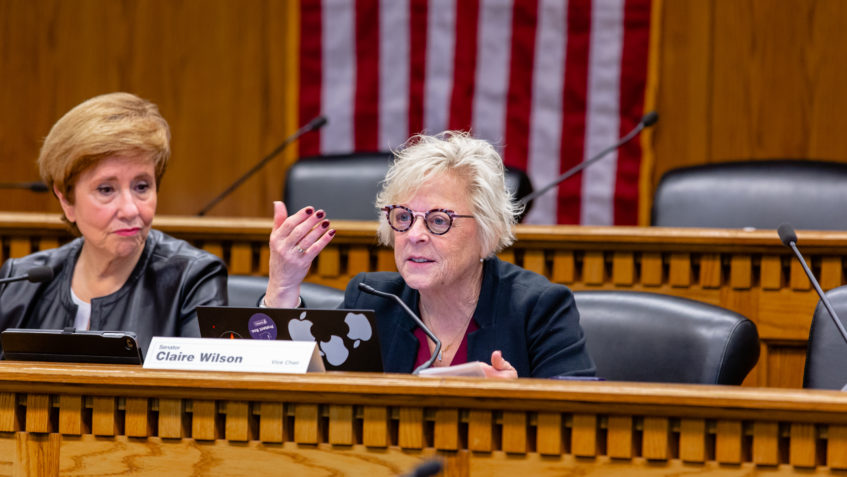Six bills passed Monday by the Senate Ways & Means Committee are among eight bills sponsored by Sen. Claire Wilson (D-Auburn) that continue to move through the Legislature.
Those bills include:
- SB 6038, to maximize the availability of childcare by increasing stability among small-business childcare providers by making them eligible for a B&O tax exemption currently awarded other childcare providers;
- SB 5908, to streamline eligibility for the Extended Foster Care program to allow more young people 18-21 to participate in the program while also expanding the supports available to them. This addresses the large number of youths who leave foster care and become unhoused or face significant financial hardship.
- SB 5799, to expand food product integrity by establishing the misdemeanor offense of selling products said to meet Islamic standards for halal foods when the seller knows that the product fails to meet those standards either because of its contents or preparation methods;
- SB 6109, a children and families fentanyl response bill which relates to support of children, families, child welfare workers and the courts by improving services and clarifying the child removal process in circumstances involving high-potency synthetic opioids;
- SB 5893, to expand ‘gate money’ eligibility (a stipend currently available to a very small number of individuals exiting partial confinement) to anyone being released from custody, including people exiting under supervision, those in the graduated re-entry program or under the community parenting alternative program, or in re-entry centers and work release to help support successful reintegration into the community; and
- SB 5953, to improve the ability of people to transition successfully into their communities upon release from the corrections system by extending eligibility for Pell Grants to all correctional institutions. In a limited program at the Washington Corrections Center for Women in Purdy, access to higher education has not only led to more successful transitions but provided an area of focus for incarcerated individuals, improving safety both for them and for staff.
In addition, two Wilson bills approved earlier by other Senate committees await consideration by the full Senate:
- SB 5938, to bring the partial re-entry program for incarcerated parents of infants in line with other re-entry programs by extending it from 12 months to 18 months. This will broaden participation by people who currently do not participate because the program is only 12 months, while other re-entry programs feature up to 18 months, but do not focus on the needs of parents; and
- SB 5941, a multipurpose cleanup bill that aligns and condenses an array of important Working Connections Child Care Subsidy program policies that have been passed piecemeal in recent years. It does not change policy but simply makes technical changes to organize the delivery of state services and programs more efficiently.
As today was the deadline for committees to approve bills with fiscal impacts, bills that have not been passed out of committees are considered inactive and ineligible for consideration this year. Though Wilson’s SB 5870 failed to make it out of committee, its goals would be achieved through a combination of two bills still moving through the House, HB 2124 and HB 1945. Together, those bills would maintain high-demand childcare services by extending eligibility for Working Childcare Connections and ECEAP to critically needed childcare providers who are struggling economically.
Lastly, Wilson plans to achieve the goals of another bill that failed to clear committee, SB 6018, by adding a proviso to the Senate operating budget to restore funding for early learning coordinators regionally. Ever since grant funding for ESD coordinator positions lapsed several years ago, this critical work has either been scaled back, gone undone, or in some cases been completed piecemeal.

